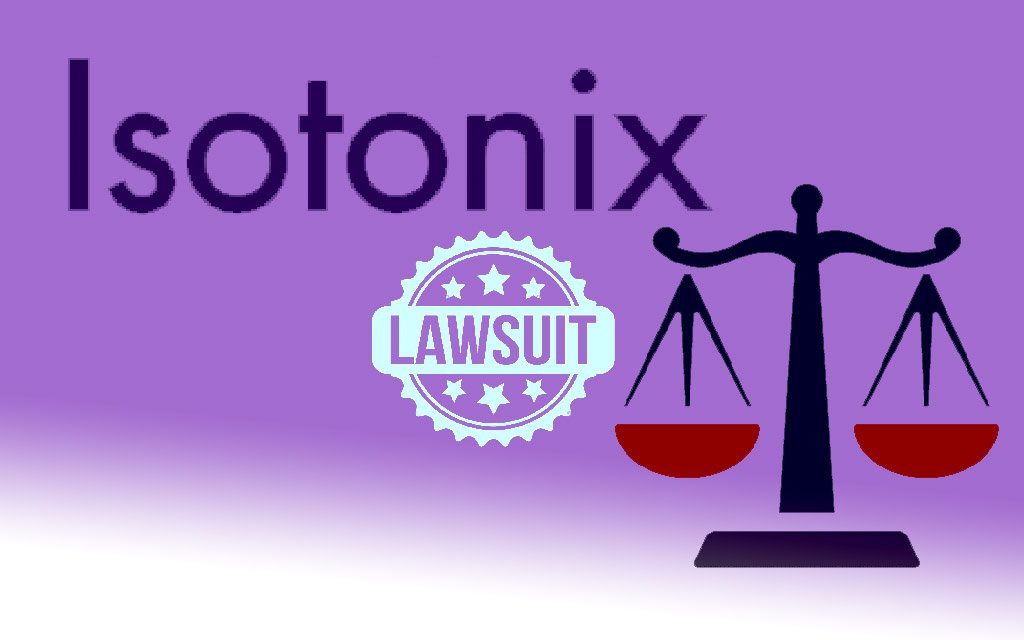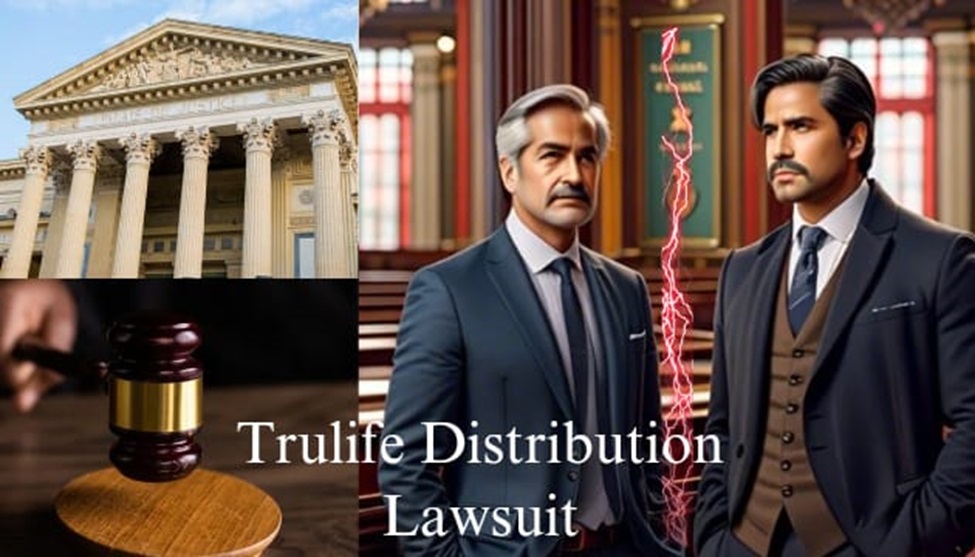Raw Sugar Shampoo LawsuitPopular for its natural and eco-friendly personal care products, Raw Sugar has been hit by a major lawsuit. A class action lawsuit against the company brings serious concerns about product labeling and safety claims to the forefront. Consumers who were sold on promises of clean and natural ingredients question the truth of its marketing in light of these allegations.
It alleged Raw Sugar to be misrepresenting the quality and safety of shampoo products. Several users got frustrated with its claims. Consumers allege that even when marketed as nontoxic and gentle, the brand’s product caused unexpected side effects to many users. This case shed light on transparency in personal care and stronger regulatory measures.
Raw Sugar Faces Legal Action
This lawsuit has sparked widespread debate about the responsibility of personal care brands to represent their products accurately. Consumers expect honesty when purchasing items labeled as natural and safe. The legal case against Raw Sugar highlights the growing demand for brands to meet their advertised standards.
Raw Sugar gained popularity due to its eco-conscious branding and plant-based ingredients. However, many customers now feel misled by the company’s claims. The lawsuit seeks to hold Raw Sugar accountable for alleged deceptive marketing and potential harm caused to users.
Allegations in the Raw Sugar Shampoo Lawsuit
The lawsuit against Raw Sugar raises critical concerns about the accuracy of product marketing in the personal care industry. Consumers argue that the company’s claims may not align with its products’ actual composition and effects.
Read also: Armaid Complaint: Sony Beverly Slate Lawsuit: A Legal Battle Unfolded
Misleading Product Claims
The case claims that Raw Sugar made false claims about their shampoos being free of chemicals. According to the lawsuit, a number of compounds in the ingredients list violate the brand’s claims that it is all-natural and non-toxic. In other words, a lot of these consumers thought they were getting a safer product for their scalp and hair.
Adverse Reactions and Customer Complaints
Numerous users have reported scalp irritation, hair breakage, and allergic reactions after using Raw Sugar shampoos. Some claim that prolonged use worsened their hair condition rather than improving it. These allegations have raised questions about whether the products are actually as gentle as described.
Consumer Protection Law Violations
The lawsuit alleges that Raw Sugar violated consumer protection laws by misrepresenting the product to customers. According to plaintiffs, the company used deceptive advertisements to charge a premium that does not serve to maintain the standards promised for the product. If established, these are violations punishable by monetary penalties and requiring mandatory labeling changes.
Raw Sugar Reply to the Lawsuit
Given this increased public spotlight, Raw Sugar has addressed and acted on those concerns in its lawsuit. They argue that Raw Sugar’s product is safe; it is duly tested, complying with all standard industry requirements and regulations.
Raw Sugar has denied all allegations, justifying its formulations and marketing strategies. The company asserts that it tests its products extensively to guarantee their safety and efficacy. According to executives, all ingredients comply with industry standards and are well labeled on product labels.
The brand also argues that individual reactions to personal care products can vary. They maintain that consumer experiences do not necessarily reflect product defects. Raw Sugar continues to market itself as a clean and sustainable beauty brand despite the ongoing lawsuit.
Legal Implications of the Case
Consumer Compensation and Refunds
If the lawsuit is successful, affected customers may receive financial compensation or refunds. Courts may require Raw Sugar to reimburse users who suffered adverse effects from using the products. The company could also be forced to adjust its pricing and labeling.
Impact on Marketing Practices
This lawsuit could push personal care companies to be more transparent in their marketing. If Raw Sugar loses the case, brands may face stricter regulations on advertising terms such as “natural” and “non-toxic.” More apparent labeling requirements could become standard in the industry.
Industry-Wide Consequences
The legal battle against Raw Sugar may set a precedent for future cases in the beauty industry. Other brands making similar claims could come under scrutiny. This case may encourage consumers to demand more transparency and accountability from personal care manufacturers.
Consumer Reaction and Brand Reputation
Customers are essential to holding companies responsible. There has been a strong response to this lawsuit, with many people sharing their personal stories and worries about dishonest marketing tactics.
Loss of Customer Trust
Many loyal customers now feel skeptical about Raw Sugar’s claims. Some have stopped using the brand, turning to competitors offering greater transparency. If the lawsuit continues, Raw Sugar may struggle to rebuild consumer confidence.
Sales and Market Impact
Negative publicity can significantly impact sales. If consumers lose confidence in Raw Sugar, the company will face a revenue downfall. Competitors will attain market share due to dissatisfaction with Raw Sugar’s products.
Increased awareness of beauty industry practices
This case has brought out discussions on deceptive marketing in the personal care industry. Consumers are becoming more knowledgeable about the ingredients and claims in products. Many now demand clearer labeling and stricter oversight to ensure they receive what brands promise.
Possible Outcomes of the Lawsuit
The resolution of this case could set a precedent for similar lawsuits in the personal care industry. Consumers and businesses are closely watching to see what consequences Raw Sugar will face, if any.
Financial Settlements
Raw Sugar may choose to settle the lawsuit by compensating affected customers. A settlement could involve refunds or discount offers on future purchases. This option could help Raw Sugar minimize reputational damage while addressing consumer grievances.
Labeling and Reformulation Changes
If Raw Sugar loses the lawsuit, the company may need to reformulate its products. Courts could require the brand to remove questionable ingredients or update its advertising to reflect more accurate claims. Stricter oversight of personal care marketing could emerge as a result.
Dismissal of the Case
The lawyers for Raw Sugar may move to dismiss, stating that the case is based on insufficient evidence. If the court grants this, the company will continue running its business with minimal changes. Even a dismissed case can do much damage to a brand.
Lessons from the Raw Sugar Shampoo Lawsuit
This lawsuit highlights the importance of informed purchasing decisions. Consumers are becoming more aware of misleading claims and are demanding greater transparency from beauty brands.
Transparency in Product Marketing
Personal care brands must ensure their marketing aligns with product reality. Consumers deserve clear and honest labeling. Misleading claims can lead to legal troubles, loss of trust, and financial consequences.
Consumer Awareness and Advocacy
Shoppers should research product ingredients and verify brand claims before making purchases. Increased consumer awareness can prevent deceptive marketing from influencing buying decisions. Legal cases like this remind customers to stay informed.
Industry-Wide Changes
This lawsuit could lead to stricter regulations on beauty product labeling. If brands face more accountability, the personal care industry may adopt clearer advertising guidelines. Future marketing strategies may focus on accuracy rather than broad, appealing claims.
Conclusion: The Future of Raw Sugar and Consumer Rights
The case against Raw Sugar Shampoo serves as a reminder of the growing need for accountability in the personal care sector. Customers anticipate truthfulness in product promotion and unambiguous ingredient information. If Raw Sugar is held accountable, the case may result in more stringent marketing laws for the whole cosmetic sector.
Whatever the outcome, this case should teach a lesson to those companies that make exaggerated claims about their goods. False advertisements can get a company into judicial trouble and reduce consumers’ faith in the product. Business marketing practice must, therefore, be truthful to survive in the long run.
But the consumers have to watch out. Only by reading labels, investigating what is in, and making responsible brands accountable for their cosmetics will safer and more transparent decisions in the market be ensured. This case will probably impact future industry standards as the legal proceedings progress.


